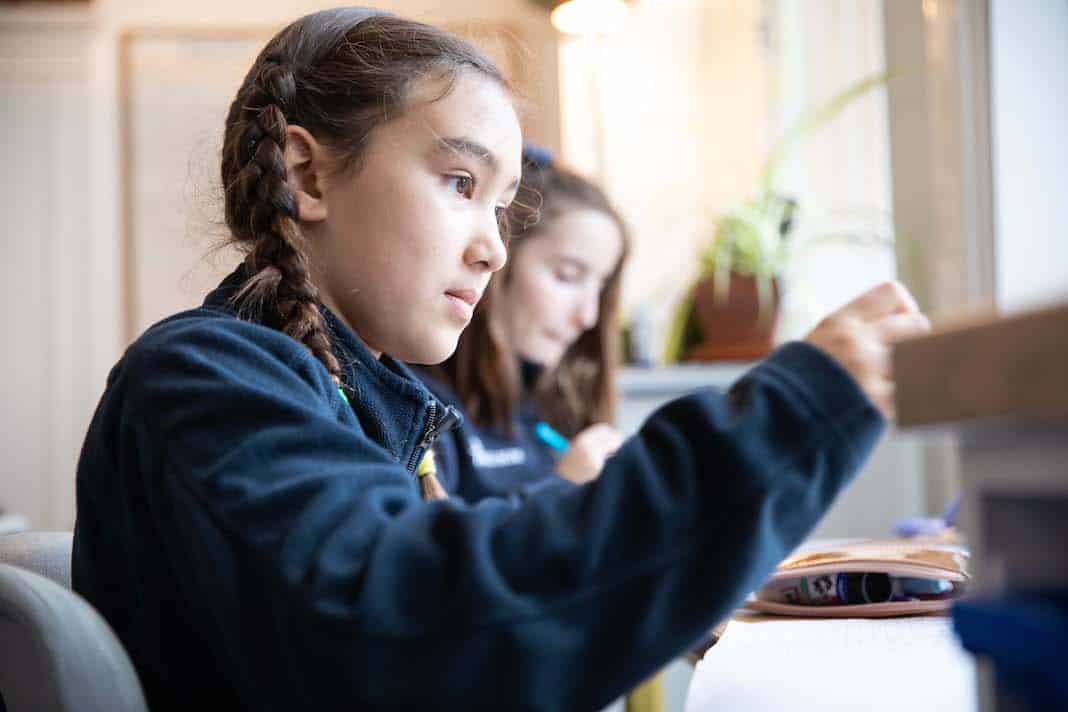Flora Winter, the Primary Years Programme Coordinator at Southbank International School on how its IB system develops learning skills and values for life
The International Baccalaureate curriculum teaches young people aged 3-18 how to develop specific characteristics that are representative of being ‘a good learner’ and ‘a good person’. At the same time, it aims to develop specific skillsets – recognising that young people need to be able to collaborate, negotiate, problem solve, be creative and become critical thinkers. Right from the start, the IB aims to foster curiosity and encourage young people to ask questions. In doing so we identify common threads and an understanding of how young people approach different subjects, teaching them to be able to share their thinking, to ask questions and to problem solve together.

For the youngest children at Southbank International School there is a big focus on how they can help one another improve. In grade 1 (age 6-7), students participate in a ‘Unit of Inquiry’ on how to express themselves in various contexts. Working in small groups they develop questions, allocate roles so they know who will take responsibility for each aspect, and then they present their findings to the rest of the school and to parents. Every year the children learn from one another, critiquing their work and making improvements along the way. We also have specific units of inquiry looking at ourselves and our cultural identity. It is the school’s belief that understanding ourselves helps us to understand others better, which is something that our parent community support through participation in events, sharing cultural practices and elements of their home life in different languages.
Among the many advantages of being a school in Central London is that there are so many opportunities for students to go out and explore different parts of the city, and for people to present new ideas and perspectives to them. We see London as our classroom and this helps children to develop an understanding of the world around them, consider alternative perspectives and see the world through more than just their own eyes.
A core element of the IB Primary Years Programme (PYP) is encouraging children to take ‘Action’. We talk about five different types of action in response to learning: Participation and being involved in the community (in the classroom and beyond); Advocacy (individually or as a group); Social Justice (taking action for positive change); Lifestyle Changes (healthy eating or keeping fit); and Social Entrepreneurship (locally and nationally).
“Everything we teach is underpinned by a sense of community – essential to children developing an understanding of their role in society”
This is further supported through linking back to the United Nations Sustainable Development Goals, demonstrating to students the relevance of what they are learning. One example was the ‘Gratitude Project’ last year, when the school council worked with the PTA to raise money for North London Food Banks. Smaller things happen daily too. For instance, some children undertook a unitive inquiry on pollution. Noticing parents were leaving their vehicles running at drop-off they made signs reminding drivers to switch their engines off.
Everything we teach is underpinned by a sense of community, which is essential to children developing an understanding of their role in society. They are taught to take responsibility for something beyond themselves. It could be as simple as caring for a plant, helping a friend who is upset or putting things away tidily. These are the sorts of attributes we believe children need to develop, learning at a micro level from a very young age and then applying the same principles to life as they progress through the school and beyond.
Southbank International School southbank.org
Further reading: Queen Ethelburga’s Collegiate on building a curriculum for future success
You may also like...

























